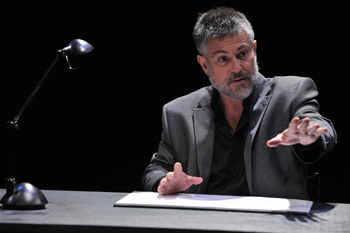This was the debut performance for the Raleigh Camerata, a group of period instrument musicians dedicated to the performance of small to midsize chamber music of the Renaissance through the early Classical periods. Their goal is to bring seldom heard literature of this period to life in the Raleigh-Durham area. The instrumentation consists of Baroque and Renaissance flutes, played by Kelly Nivison Roudabush, who is also Artistic Director of the group; Baroque violin – Andrew Bonner; Baroque cello – Brian Carter; mezzo-soprano – Erica Dunkle; lute and theorbo – Anthony Harvey; viola da gamba – Belinda Novik; baroque viola – Suzanne Rousso; harpsichord – Jennifer Streeter; baroque oboe – Tom Turanchik; and baroque violin – Allison Willet. They perform on copies of the period instrument used in the 16th, 17th, and 18th centuries.
The concert took place in the amiable ambience of the sanctuary of Fairview United Methodist Church on a most pleasant day that hinted of autumn. It was titled “Songs of Love” and featured mostly music from the rich French baroque around the reign of Louis the Fourteenth. The first selection was dance movements from Le Triomphe de L’amour, LWV 59 by Jean-Baptiste Lully (1632-1687) featuring the entire ensemble sans vocalist. Twelve movements from the ballet introduced us to the charm and grace so characteristic of the French baroque. Several of the short selections were written as introductions to various characters in the ballet. The “Entrée des Quatres Vents,” for example, was very busy music for the strings and harpsichord and quite suggestive of wind in musical terms. The performance style of Raleigh Camerata was elegant and seasoned, though this was their first outing. The ensemble and blend of instruments was crisp, clear and concise.
We heard next from the master of the baroque keyboard, François Couperin (1688-1733). Septième Concerts Royaux is from his second set of such, designated as Nouveaux Concerts, published in 1724. It was performed by flautist Roudabush and harpsichordist Streeter and bloomed with all the elegance and charm of a courtly soiree in Louis the Fourteenth’s private chambers.
After a brief intermission Dunkle was featured in three French chansons drawing on texts of unrequited love. Pierre Moulu (ca.1484-ca.1550), a pupil of Josquin des Prez wrote many sacred masses and motets as well as being a prolific composer of chansons. “Amy, Souffrez” (My love, Allow me) appears in many publications of the time. It was beautifully sung with lute and viola da gamba accompaniment.
“Enfin, la beauté” (Finally, the beauty) by Étienne Moulinié (1599-1676) is the only selection from this set of his songs that includes a lute solo prelude and postlude to the sung text. The text consists of three quatrains with a refrain repeated after each.
Claudin de Sermisy (c.1490-1562) wrote both sacred and secular works and was one of the most renowned composers of French chansons of the 16th century. “Tant que vivray” (So long as I live), like most of his chansons, was written in four parts but numerous arrangements can be found from his day to now. It was sung today as a solo with flute, 2 viols and lute accompaniment. It allowed Dunkle’s rich, mello and smooth mezzo voice to float through the sanctuary exquisitely. Those who have seen some of the renaissance era dramas at the movies or on television may have heard this beautiful gem before.
It was a treat to hear Streeter perform Couperin’s “Le rossignol en amour” (The Nightingale in Love) with such precision and class, the trills and turns and other ornamentations perfectly executed. It is this kind of music, and this kind of music making, that make the harpsichord special.
To close the concert, an ensemble of flute, baroque violin, baroque cello, theorbo and harpsichord accompanied the mezzo-soprano in a performance of André Campra’s Le Papillon (The Butterfly), a lovely cantata published in 1728. Campra (1660-1744) was one of the key figures in the development of opera. His operas L’Europe galante, Tancrède and Iphigénie en Tauride are still occasionally performed. Le Papillon contains some of his rapturous music and was performed winsomely by these members of Raleigh Camerata.
It is devoutly to be hoped that this ensemble will find generous funding and audience support for they are a joy to hear. The refinement that comes with making music together can only enhance their superb sound and excellent programing commitment. And in addition, they provided a printed program with informative notes on each selection, which always adds to the pleasure of the listening experience. We wish them a bright future.











